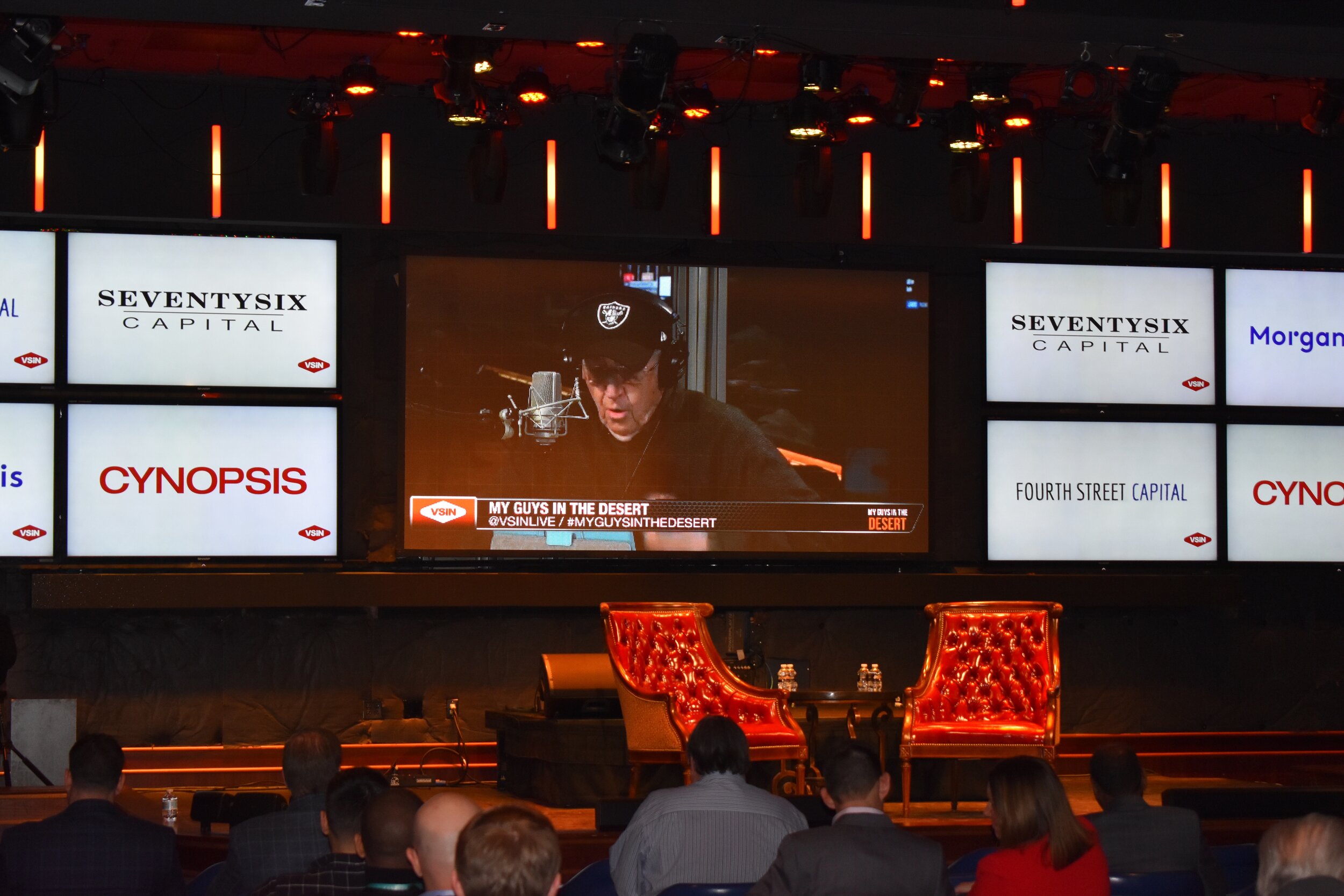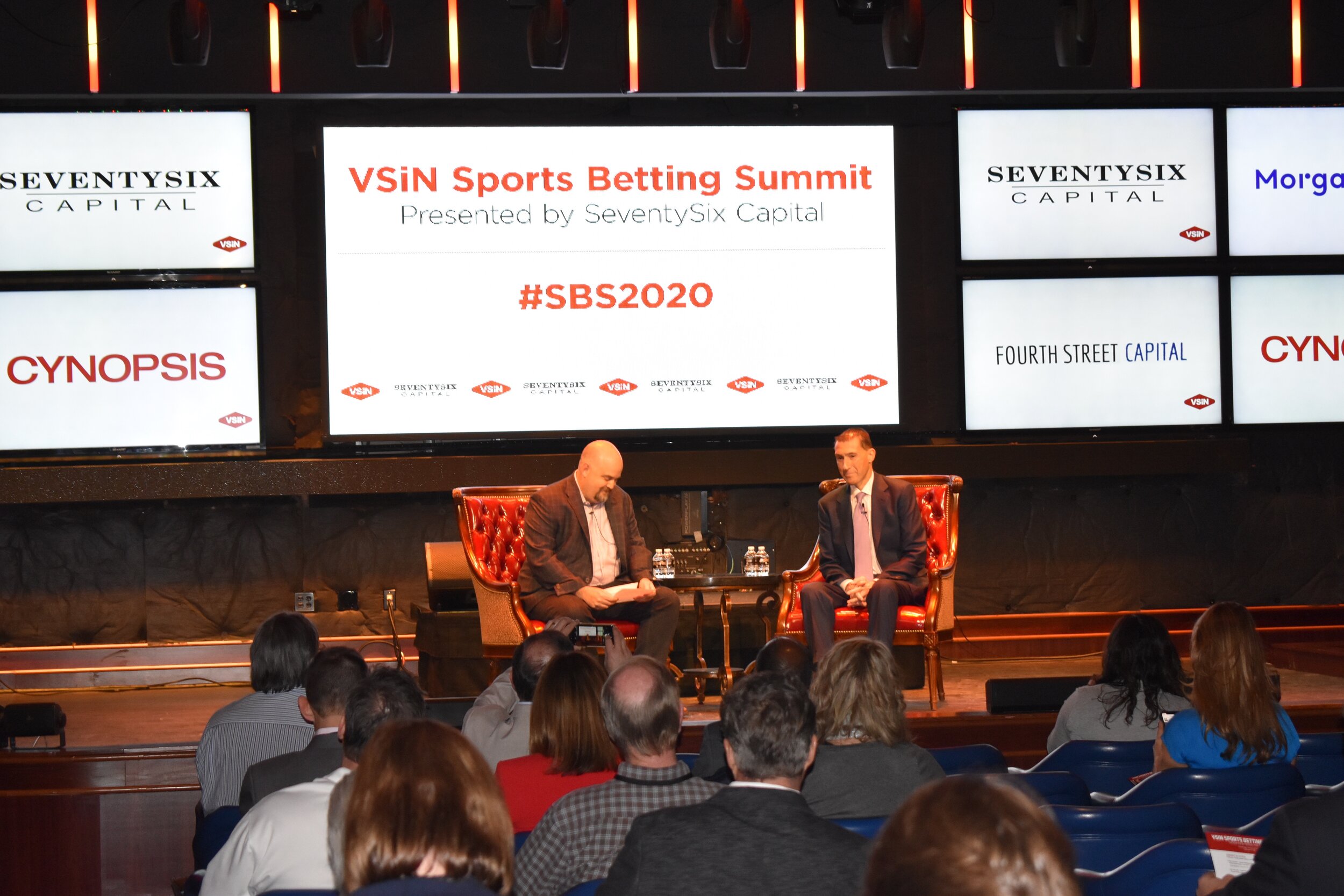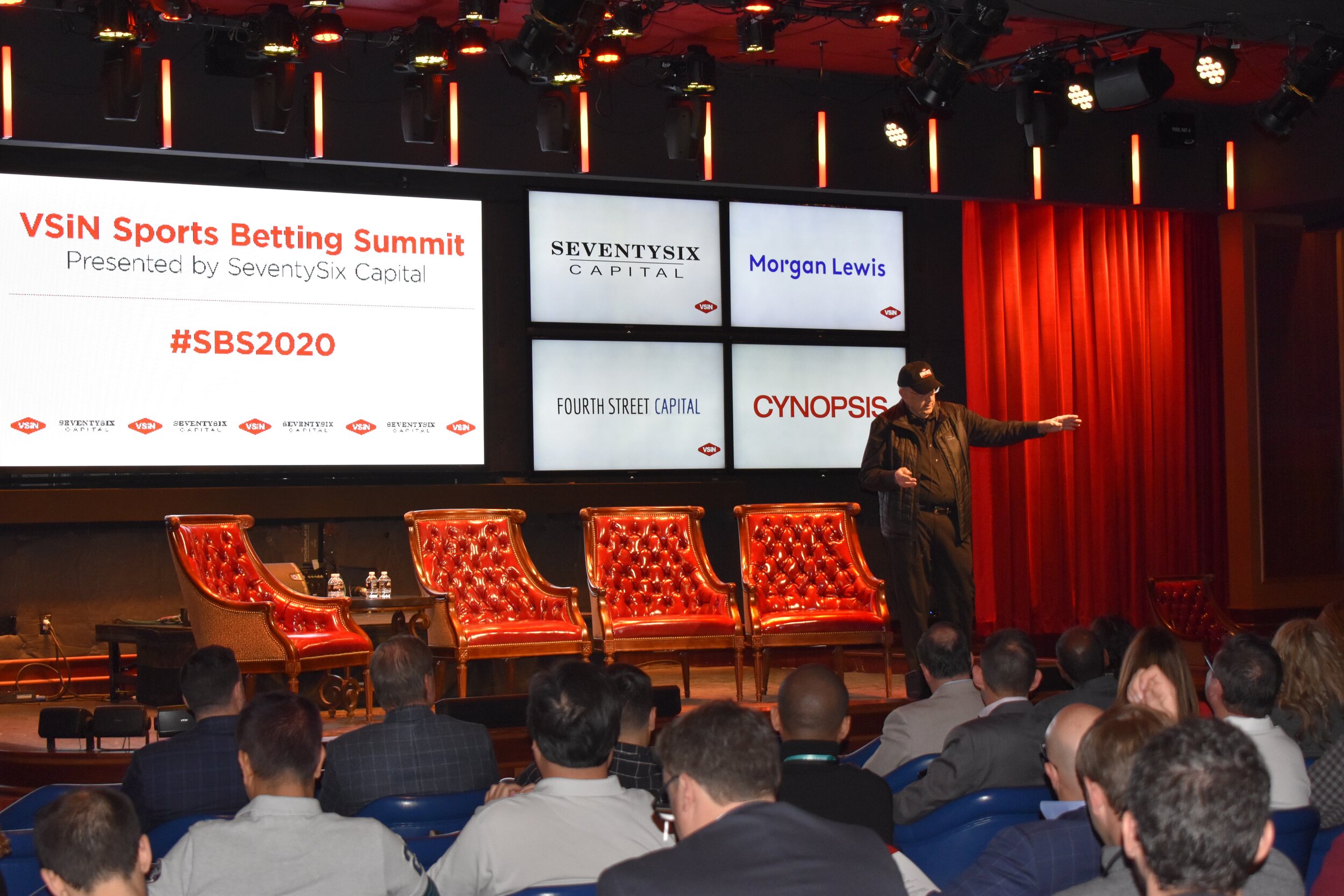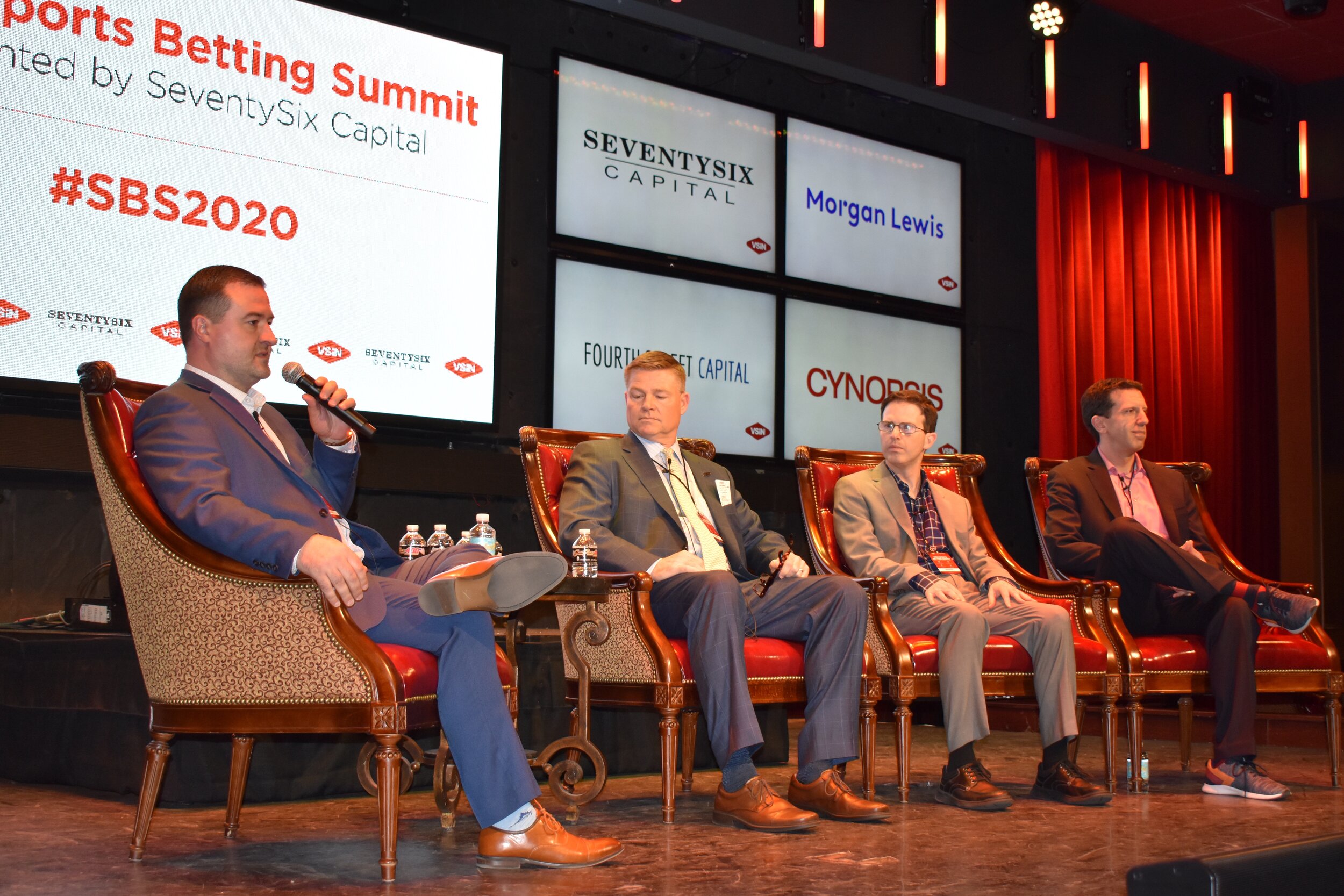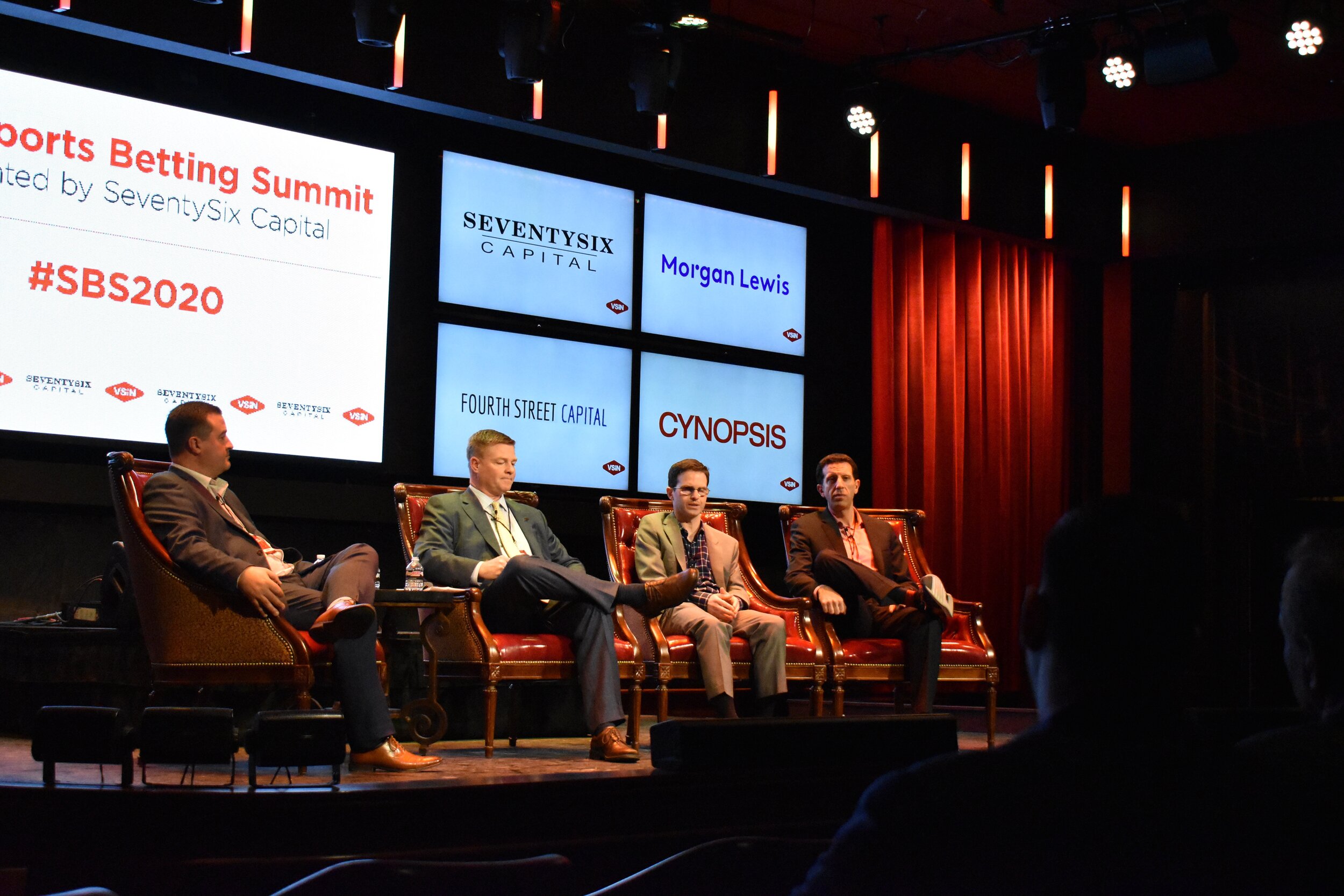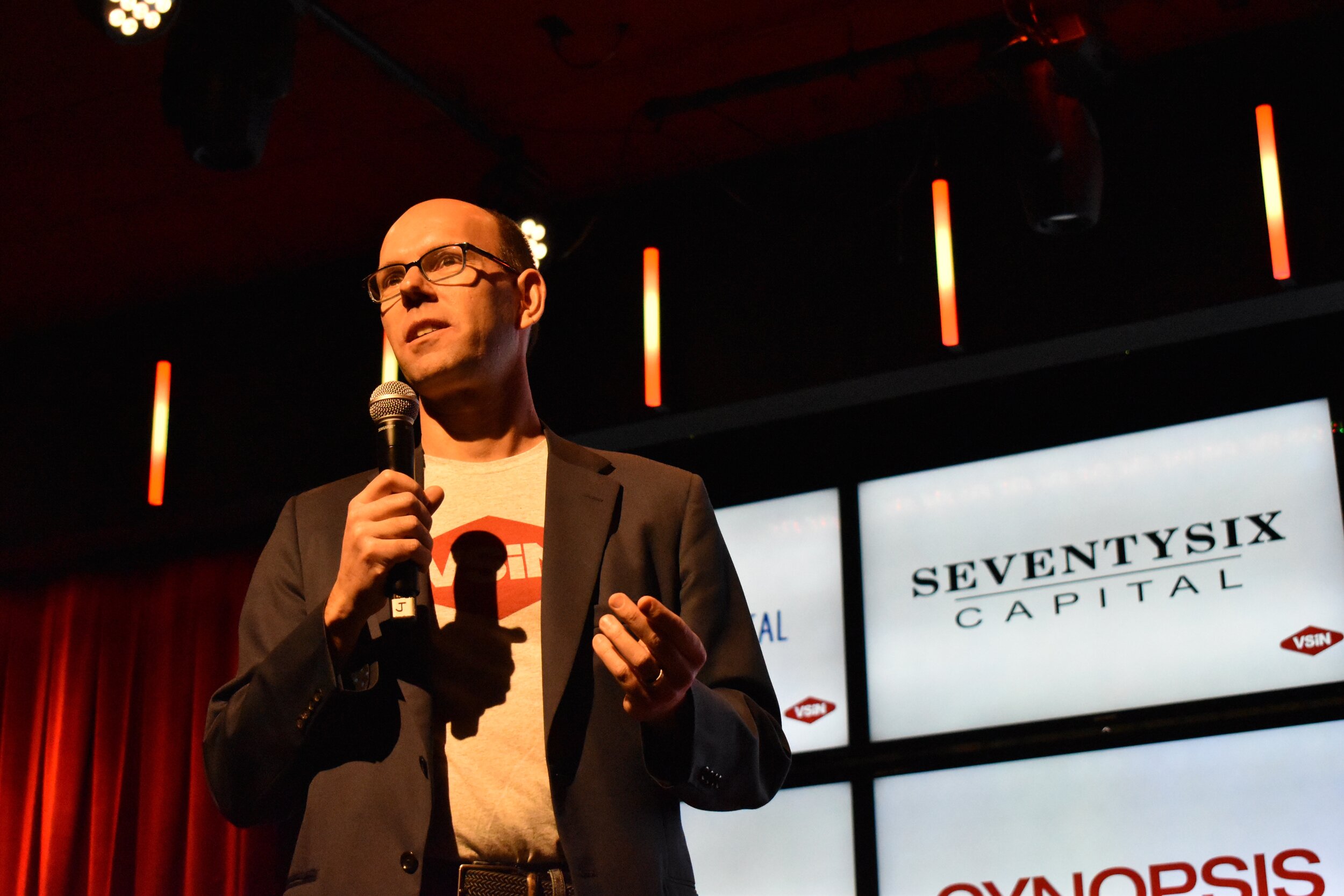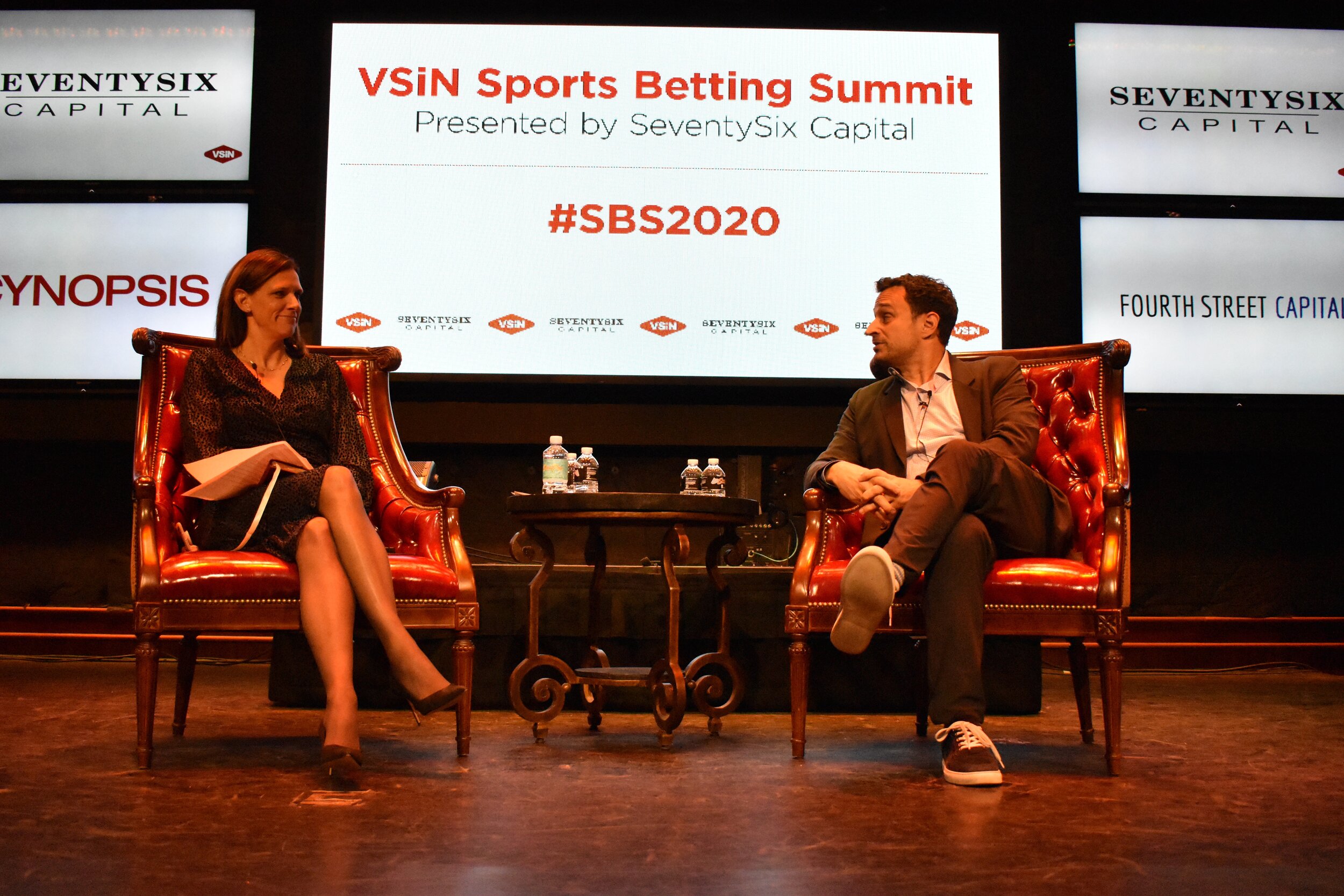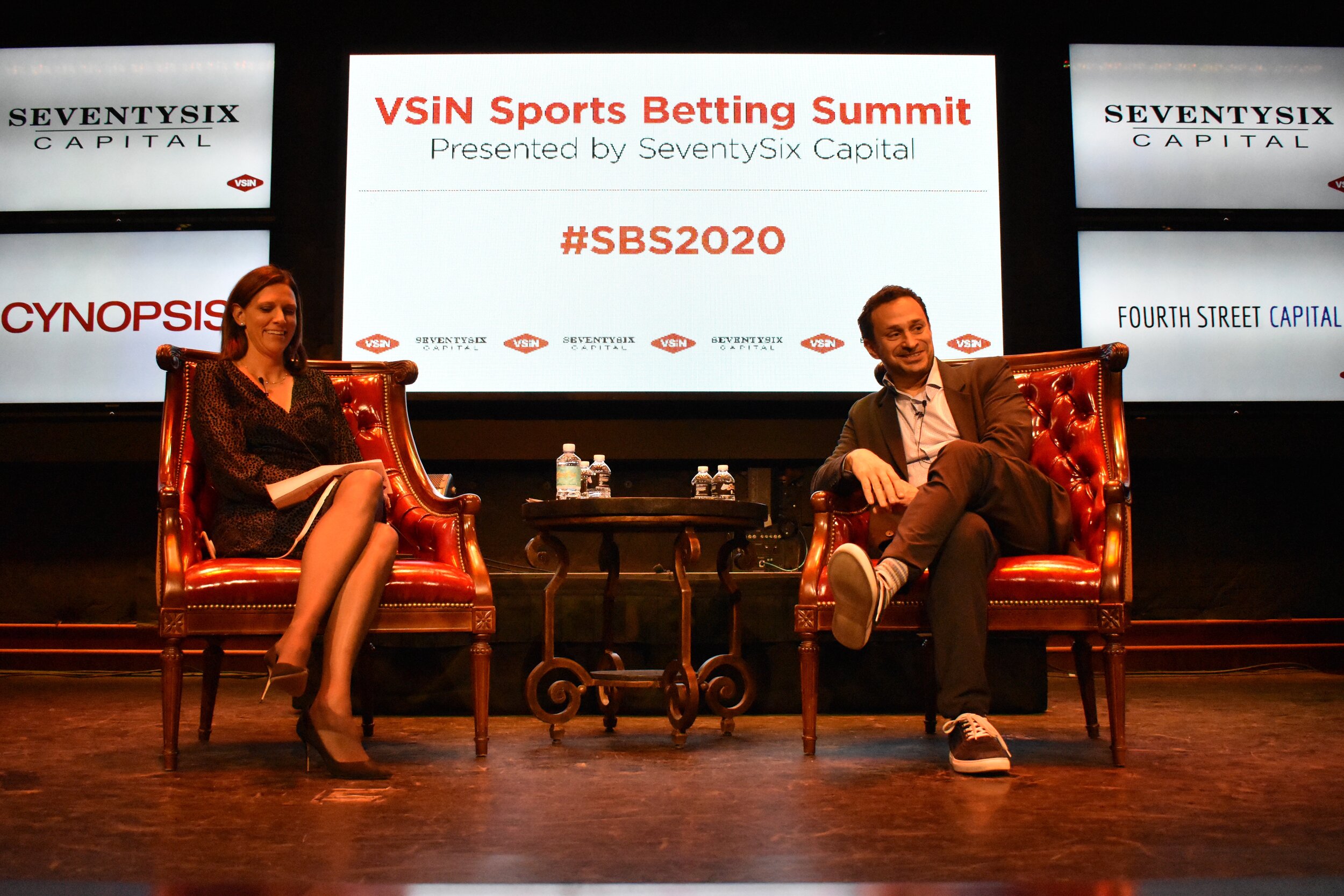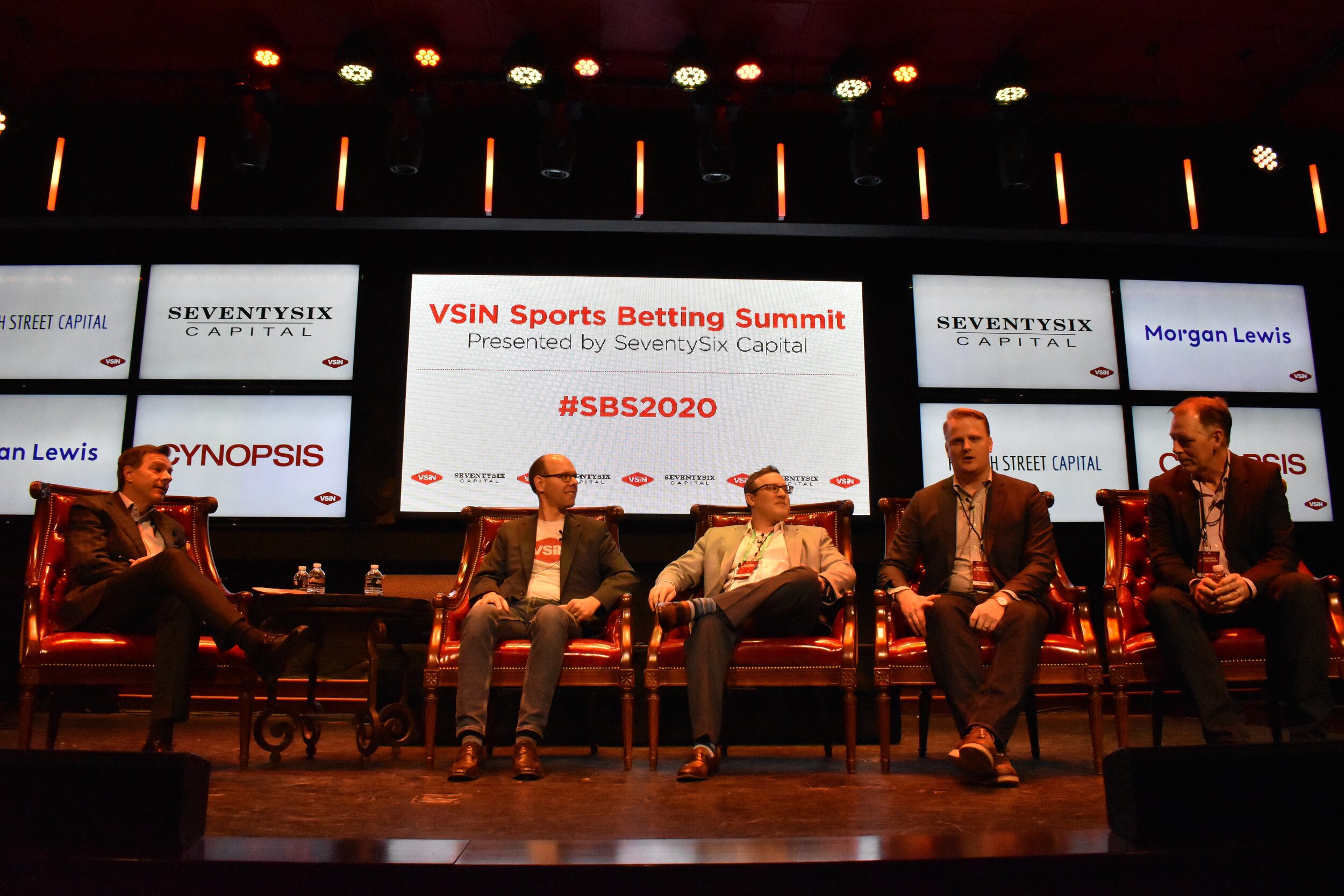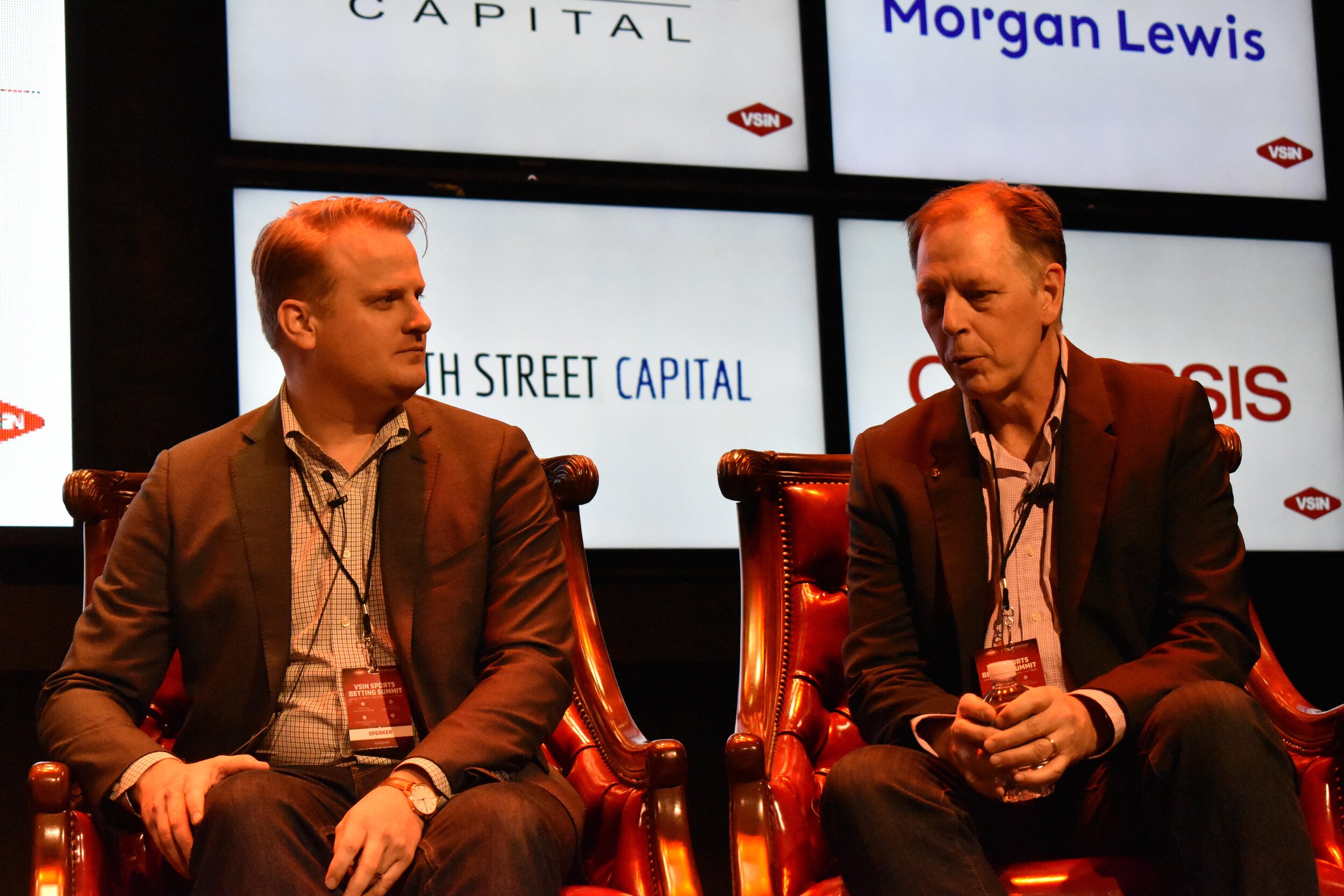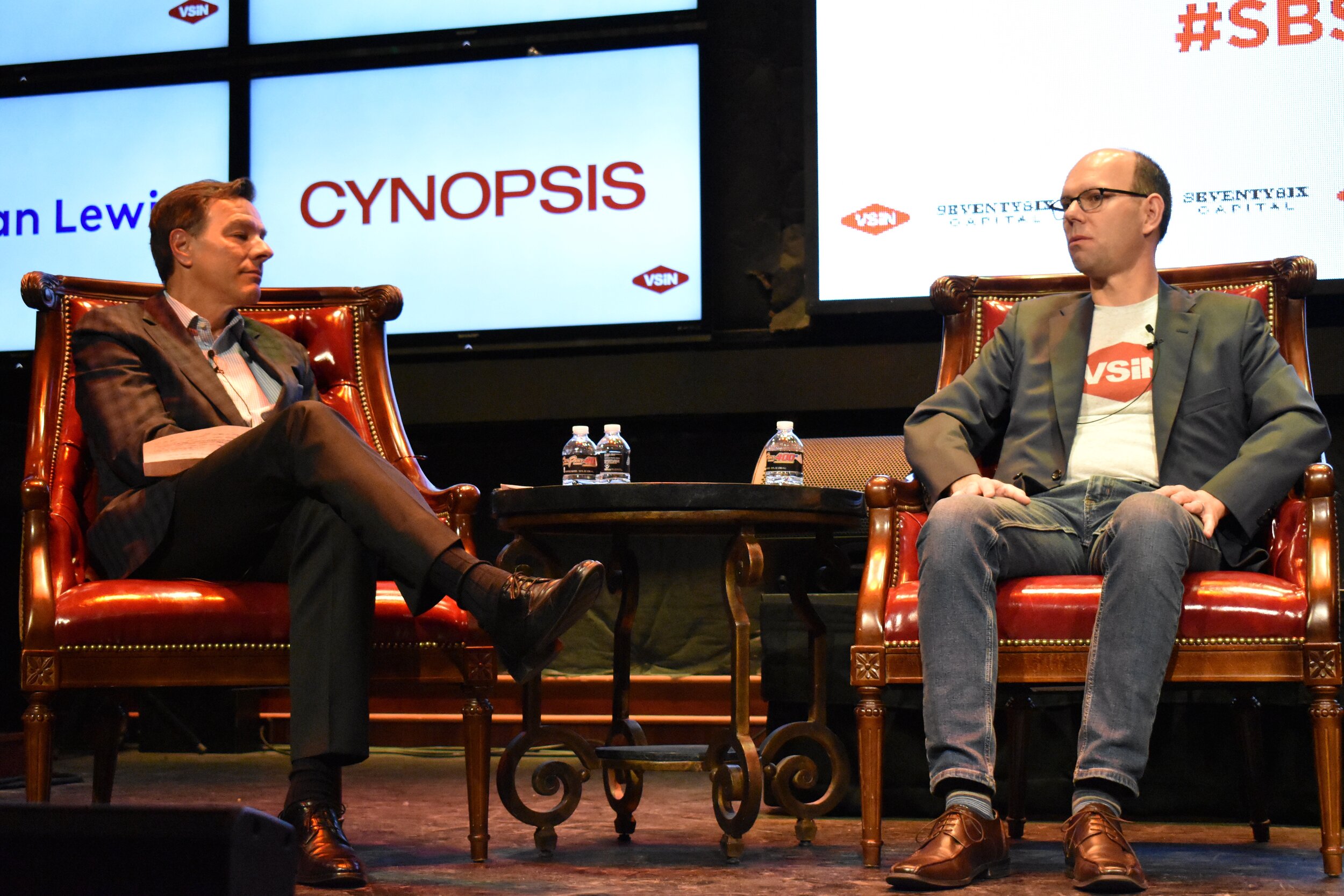VSiN Sports Betting Summit
Presented by SeventySix Capital
WEDNESDAY, JANUARY 8, 2020 | LAS VEGAS
The Future of Sports Betting
The 2020 VSiN Sports Betting Summit Presented by SeventySix Capital held during CES featured Brent Musburger, VSiN co-founder, Matt Holt of U.S. Integrity, Sara Slane, Scott Butera of MGM, Kenny Gersh of MLB and many other prominent sports business executives.
Topics discussed include sports betting’s changing audiences, MLB’s approach to betting, and how sports betting is entering the overall media space. For a written synopsis of each panel, continue reading below.
Expanding the Sports Betting Audience . . .
Summary by Crystal Fountain, SeventySix Capital
Baird Fogel • Partner, Morgan, Lewis, & Bockius LLP
Jacob Oberman • SVP Development, Rush Street Gaming
Adam Candee • Managing Editor, Legal Sports Report
Matthew Holt • President, U.S. Integrity (Moderator)
Sports betting is a potentially $500 billion market. States like Nevada and New Jersey are ahead of the game and are expected to continue their momentum. Though the legal U.S. sports betting market is infantile, sports bettors are learning how to interact with a variety of new opportunities. Legal and technological precedents are beginning to shift the traditional sports bettor demographics.
Brick-and-mortar casino goers are converging with mobile, millennial sports fans.
Technology has, yet again, established itself as a game-changer as it relates to growth and audience engagement. Industry leaders recognize the shift.
At the VSiN Sports Betting Summit Presented by SeventySix Capital during CES 2020 in Las Vegas, sports betting experts Adam Candee, Baird Fogel, Jacob Oberman, and Matt Holt shared their insight on expanding audience engagement. Here are their three key takeaways to consider:
Redefine and Reconsider Your Target Audience
According to Fogel, traditional demographics are no longer the primary demographics* that sportsbook operators should consider. Though the demographics remain skewed, don’t ignore opportunities to engage with newer audiences.
Women, in addition to a younger generation of bettors, are enticing sportsbook operators to reevaluate their targeted marketing campaigns. Their audience is no longer determined by one persona. Instead, the audience broadens. Anyone who is interested in sports is among the newest target audience.
New betting opportunities in specific, more niche sports also attract new audiences and broaden the sports betting market. Golf and tennis (among many others) attract new, non-traditional bettors. This fact will change the way games are presented on television.
Today’s core sports bettor market: white males between the ages of 25 and 44
Put an Emphasis on Sports Betting Integrity for Collegiate Student-Athletes
The NCAA and collegiate athletics’ restrictions on sports betting can cause a whirlwind of confusion. Luckily, Oberman finds this as an educational opportunity for collegiate programs. College administrators and athletic directors were urged to bring betting data into the daylight and work with regulators, operators, and third-party enforcers to keep a strong pulse on the integrity of the game.
As the NCAA lessens its strict regulations on compensation for student-athletes, data and analytics will be even more critically important to protecting the game.
Incorporate In-Game Betting for an Ultimate Betting Experience
Legal sports betting is a young industry in the United States. Unlike the United Kingdom, the U.S. is now learning how to incorporate sports betting openly into everyday life. With little collective knowledge on the industry, many people are unfamiliar with sportsbooks, legal sports betting or its processes.
As noted by Candee, technology (especially app technology) offers an opportunity for a broader audience to get involved, learn, and monetize this growing industry. Mobile devices become educators. An untapped audience once growing in the shadows will become more adept and knowledgeable about sports betting. Technology guides the initial learning curve, but it’s also helping guide the future of audience interaction.
Education is a key component to safely bringing in-play wagering to life. As imagined, American football lends itself as the model student for in-game wagering, Fogel said. Play-to-play betting is perfect for millennials. (It’s how we think!) Play-to-play, in-game betting is constantly interactive and provides a sense of instant gratification, as well as engaging sports fans longer.
How MLB Navigates the Sports Betting Space . . .
Summary by Crystal Fountain, SeventySix Capital
Kenny Gersh • EVP, Gaming and New Business Ventures at MLB
Sara Slane • Founder, Slane Advisory
Major League Baseball (MLB) is actively adapting to the changing sports environment from both a sports betting and entertainment perspective. In the last several months, MLB secured a deal with DraftKings, helping it gain acceptance and credibility in the legal sports betting market, invested in real-time data systems for increased audience engagement among fans and sportsbooks, and named SeventySix Capital portfolio company Swish Analytics an official data provider of the league.
MLB has made great strides in recent years, and as live sports face unique challenges, we believe that entrepreneurs can help solve them.
At the VSiN Sports Betting Summit Presented by SeventySix Capital during CES 2020 in Las Vegas, Kenny Gersh, EVP of Gaming and New Business Ventures for Major League Baseball spoke with Sara Slane, founder of Slane Advisory, about the league’s interest in fan engagement, sports betting and more. Here are their three key takeaways to consider:
Teams React to Legal Sports Betting
According to Gersh, when MLB introduced sports betting opportunities to the teams, they were receptive to hearing more information. Owners were interested in hearing about how MLB planned to navigate the newly legal sports betting space. The organization recognized that the league must innovate, which played a crucial role in the teams’ continued development.
What was particularly interesting for Gersh and MLB were the revenue opportunities. There were (and still are) plenty of challenges to navigating these opportunities:
A) How does MLB use sports betting to drive engagement?
B) How can MLB leverage sports betting to drive incremental revenue?
C) How does MLB protect the integrity of the game when doing A and B?
Throughout the process, and for the entire history of the league, MLB’s priority is to protect public perception and integrity of the game. Gersh noted that MLB does not have deals where it shares any actual revenue from sportsbooks to remain a neutral party. Not only does this apply to teams and leagues, but it applies to the owners as well.
Live Gameplay Offers
Sports betting advertisements aren’t actively shown during MLB games, but the league hopes to change that as they recognize that some viewers also wish to see sports betting content while watching a live game. Gersh notes that MLB plans to make specific sports betting content available to consumers who opt-in.
At the same time, MLB is launching its free-to-play prediction game. Baseball is exceptionally suited for in-play betting. MLB’s free-to-play game offers fans an opportunity to engage in baseball like sports betting (Will this player get a home run? An out?). The difference is that free-to-play can use the odds of what’s going to happen as a storyline as opposed to strictly a betting opportunity. This model also allows MLB to showcase its data. Free-to-play will be available on Opening Day 2020 regardless of a viewer’s location.
The Future of MLB and Media
MLB’s greatest interest is integrating free-to-play gaming into broadcast. Specifically relating to delivering it to its fans and integrating it into a broadcast in a way that maintains comfortability while ensuring the game’s integrity.
Another interest is the relationship between baseball and entertainment. MLB recognizes that sporting events are becoming entertainment products. The league hopes casual baseball fans become actively engaged in the game without feeling they have to bet thousands of dollars to do so. There are opportunities for MLB to involve fans in the game, like providing fan access to real-time data systems or offering potential rewards or prizes for being at the game.
Sports Betting State of the Union . . .
Summary by Crystal Fountain, SeventySix Capital
Scott Butera • President, Interactive Gaming, MGM
Brian Musburger • Co-founder and CEO, VSiN
Since the U.S. Supreme Court deemed the Professional and Amateur Sports Protection Act of 1992 (PASPA) unconstitutional in May 2018, states are free to decide whether or not to legalize sports betting. PASPA’s repeal ignited a variety of changes to the sports betting industry. The greatest change is its full legalization in 14 states, and its legal-but-pending launch date in six states and two territories.
VSiN Co-founder and CEO Brian Musburger interviewed Scott Butera for an open conversation about sports betting’s impact on the gaming industry. Butera, who is president of Interactive Gaming at MGM, shared the following perspectives:
Viewing Habits Are Changing
For generations, traditional sports fans would go to a game to enjoy the sport. If their team won, they were happy. If they lost, they weren’t. Today, live sporting events are another form of entertainment. The game is just a portion of the overall experience. Sporting events have become social attractions and venues are placing more emphasis on experiences outside of the game itself.
People consume sports differently, which is the “writing on the wall” for PASPA. The casual or dedicated sports fan is a great customer for sports betting, alongside the numerous additional aspects of the game. Their interests are accelerating the growth of the legal sports betting industry, helping it become universally accepted among leagues, teams, and legislators.
Mobile vs. In-Person Betting
Mobile sportsbooks apps generally target the millennial customer whereas on-site sportsbooks share a general interest among professional or serious sports bettors. Mobile betting is growing much faster than retail – at least for the MGM, according to Butera. It wouldn’t be surprising if mobile betting surpassed in-person betting in the next two years, he said.
Undertaking Problem Gaming
Problem gamers are issues in the United States, as well as other parts of the world. As sports betting legalization continues, sportsbooks are taking responsible actions in hopes of mitigating the issue.
For instance, MGM’s GameSense offers tips and information on things like how the games work, the odds, and how to set limits on the time and money spent playing. MGM relies on technology and data-monitoring to service the general public.
The Future of Sports Betting in Broadcast Media. . .
Summary by Crystal Fountain, SeventySix Capital
Scott Shapiro • SVP of Corporate Development, Sinclair Broadcasting
Rick Maynard • Content Strategy, Sling TV
Geoff Reiss • GM, Yahoo! Sports
Derek Van Nostran • CMO, VSiN
Bill Hague • Executive Vice President, Magid (Moderator)
Sports betting and the media are navigating through a new wave of uncharted territory. In today’s digital age, consumers are immersed in messages – seeing nearly 5,000 advertisements per day!
Making a company’s message stand out from the rest continues to be challenging. However, today’s companies have the advantage and ability to tailor specific messages to specific audiences. Digital / social media and its subsidiaries offer ample opportunity to help deliver curated messages.
Now, sports betting companies must steer their messages through various platforms, audiences and more, while also concerning themselves with any legal implications across state lines.
Sports betting content is finding a path to a sports bettor’s TV, phone and other digital mediums. Rick Maynard, Derek Van Nostran, Geoff Reiss, Scott Shapiro, and Bill Hague shared how their companies navigate the content and media landscape. Here are their three key takeaways to consider:
Advertising and Subscription Revenue
Advertising is receiving some pushback regarding sports betting since betting content is still relatively new to the advertising world. The intricate relationship is something Maynard is frequently thinking about.
When advertising for sports betting, one of the key considerations is understanding the calls to action concerning different audiences, Reiss said. Media companies must deal with addressing specific calls to action for legal bettors while acknowledging that it may not resonate with some viewers. The concept isn’t new, but it adds an extra layer of necessary understanding between advertisers and sports bettors.
According to Shapiro, there is also a balancing act between maximizing a huge opportunity and not alienating some viewers, including marketing subscription offers. A frequent dilemma is deciding how to expand your reach to a broader audience. Doing that requires a more traditional advertising model.
Consumer Content Habits
There are an array of sports bettors, Van Nostran notes. There are heavy, hardcore sports bettors, and there are those who participate here and there. Across the country, sports betting is gaining more interest. The VSiN television morning show, for example, is gaining popularity and is the media company’s highest-performing show, Van Nostran says. General enthusiasts are increasing VSiN’s audience. Traditional sports fans are tuning in about an hour before a game comes on to be sure they’re making the best bets possible!
Over the last few years, younger audiences find interest in anything live. Reiss says that for Yahoo! Sports, it derived two indicators: team affinity and fantasy affinity. As the sports betting industry continues growing, Yahoo! Sports will continue to identify what specifically drives audiences.
Tennis and Sports Betting Content
According to Shapiro, tennis is a heavily bet on sport practically everywhere else in the world. The sport lends itself to do significantly well in point-by-point transactions – mainly because it offers incredible quality and breadth. There are a handful of long term opportunities between tennis and sports betting.





